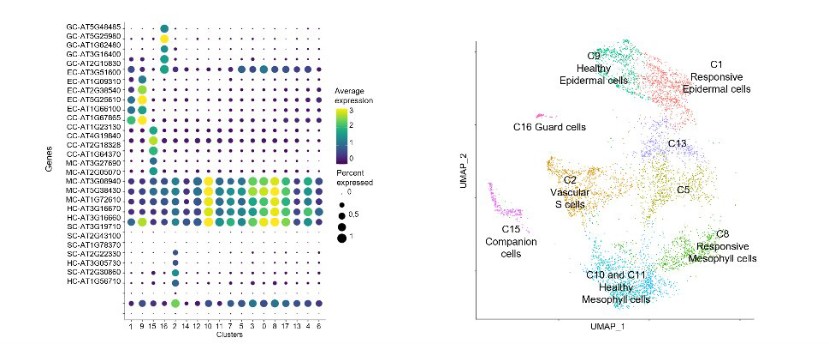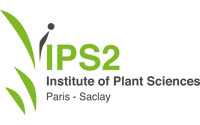Single-cell analysis of plant immune responses
Cell specialization and coordination in Arabidopsis leaves upon pathogenic attack revealed by single-cell RNA sequencing
Plant defense responses involve several biological processes that allow plants to fight against pathogenic attacks. Yet, how these different processes are orchestrated within organs and depend on specific cell types remains poorly known. To address this question, the STRESS team from IPS2, with the support of the POPS platform, and in collaboration with statisticians from the UMR MIA of Paris-Saclay, obtained and analyzed the transcriptomes of thousands of single cells coming from leaves of the model species Arabidopsis thaliana in response to a bacterial infection. The results of this study, published recently in Plant Communications, showed notably that the different cell types can undergo common and specific gene reprogramming mediated by selective sets of transcription factors. The common reprogramming includes both cell-autonomous immune responses and non-autonomous phytohormone-mediated responses that reflect a ubiquitous antagonism between immune and susceptible mechanisms. The specific reprogramming corresponds to non-cell-autonomous responses and allows the coordination of various immune processes. Altogether, these data uncover an upgraded map of the battlefield between pathogens and host cells, and also open new perspectives to enhance plant resistance against biotic stress.

15/09/2023
